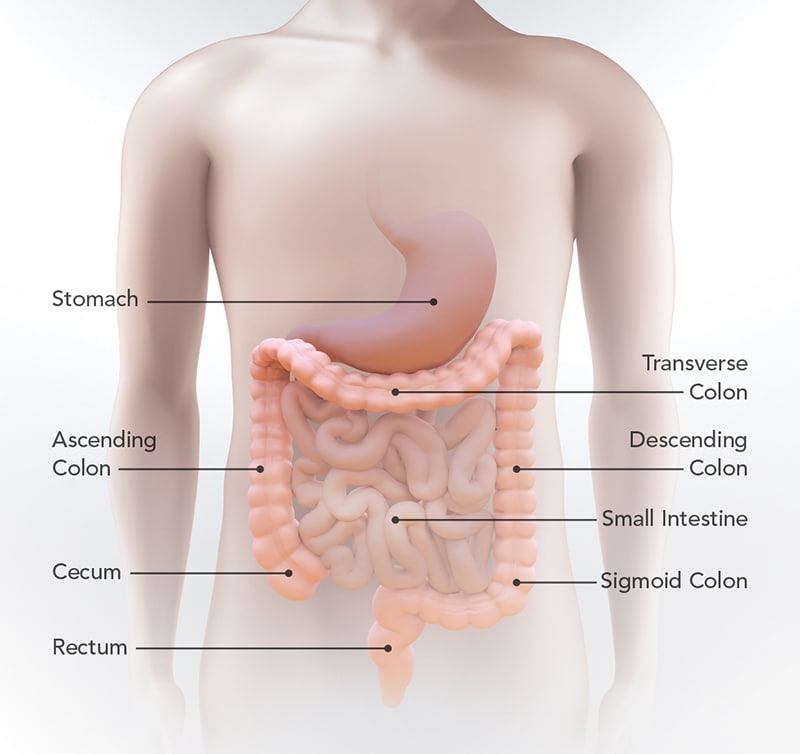What Is Colorectal Cancer?

Colorectal cancer is cancer that occurs in the colon or rectum. Sometimes it is called colon cancer, for short. As the drawing shows, the colon is the large intestine or large bowel. The rectum is the passageway that connects the colon to the anus.
Sometimes abnormal growths, called polyps, form in the colon or rectum. Over time, some polyps may turn into cancer. Screening tests can find polyps so they can be removed before turning into cancer. Screening also helps find colorectal cancer at an early stage, when treatment works best.
Risk Factors
Your risk of getting colorectal cancer increases as you get older. About 90% of cases occur in people who are 50 years old or older. Other risk factors include having:
- Inflammatory bowel disease such as Crohn’s disease or ulcerative colitis.
- A personal or family history of colorectal cancer or colorectal polyps.
- A genetic syndrome such as familial adenomatous polyposis (FAP)external icon or hereditary non-polyposis colorectal cancer (Lynch syndrome).
Lifestyle factors that may contribute to an increased risk of colorectal cancer include:
- Lack of regular physical activity.
- A diet low in fruit and vegetables.
- A low-fiber and high-fat diet, or a diet high in processed meats.
- Overweight and obesity.
- Alcohol consumption.
- Tobacco use.
Symptoms of Colorectal Cancer
Colorectal polyps and colorectal cancer don’t always cause symptoms, especially at first. Someone could have polyps or colorectal cancer and not know it. That is why getting screened regularly for colorectal cancer is so important.
If you have symptoms, they may include:
- A change in bowel habits.
- Blood in or on your stool (bowel movement).
- Diarrhea, constipation, or feeling that the bowel does not empty all the way.
- Abdominal pain, aches, or cramps that don’t go away.
- Losing weight and you don’t know why.
If you have any of these symptoms, please talk to your provider. They may be caused by something other than cancer. The only way to know what is causing them is to see your medical provider.
Screening
Colorectal cancer almost always develops from precancerous polyps (abnormal growths) in the colon or rectum. Screening tests, like colonoscopies, can find precancerous polyps, so that they can be removed before they turn into cancer. Screening tests can also find colorectal cancer early, when treatment works best.
Most people should begin screening for colorectal cancer soon after turning 50, then continue getting screened at regular intervals. However, you may need to be tested earlier than 50, or more often than other people, if:
- You or a close relative have had colorectal polyps or colorectal cancer.
- You have an inflammatory bowel disease such as Crohn’s disease or ulcerative colitis.
- You have a genetic syndrome such as familial adenomatous polyposis (FAP)external icon or hereditary non-polyposis colorectal cancer (Lynch syndrome).
If you think you are at increased risk for colorectal cancer, speak with your medical provider about:
- When to begin screening.
- Which test is right for you.
- How often to get tested.
Most insurance plans and Medicare help pay for colorectal cancer screening for people who are 50 years old or older. Colorectal cancer screening tests may be covered by your health insurance policy without a deductible or co-pay. Check with your insurance plan to find out what benefits are covered for colorectal cancer screening.
